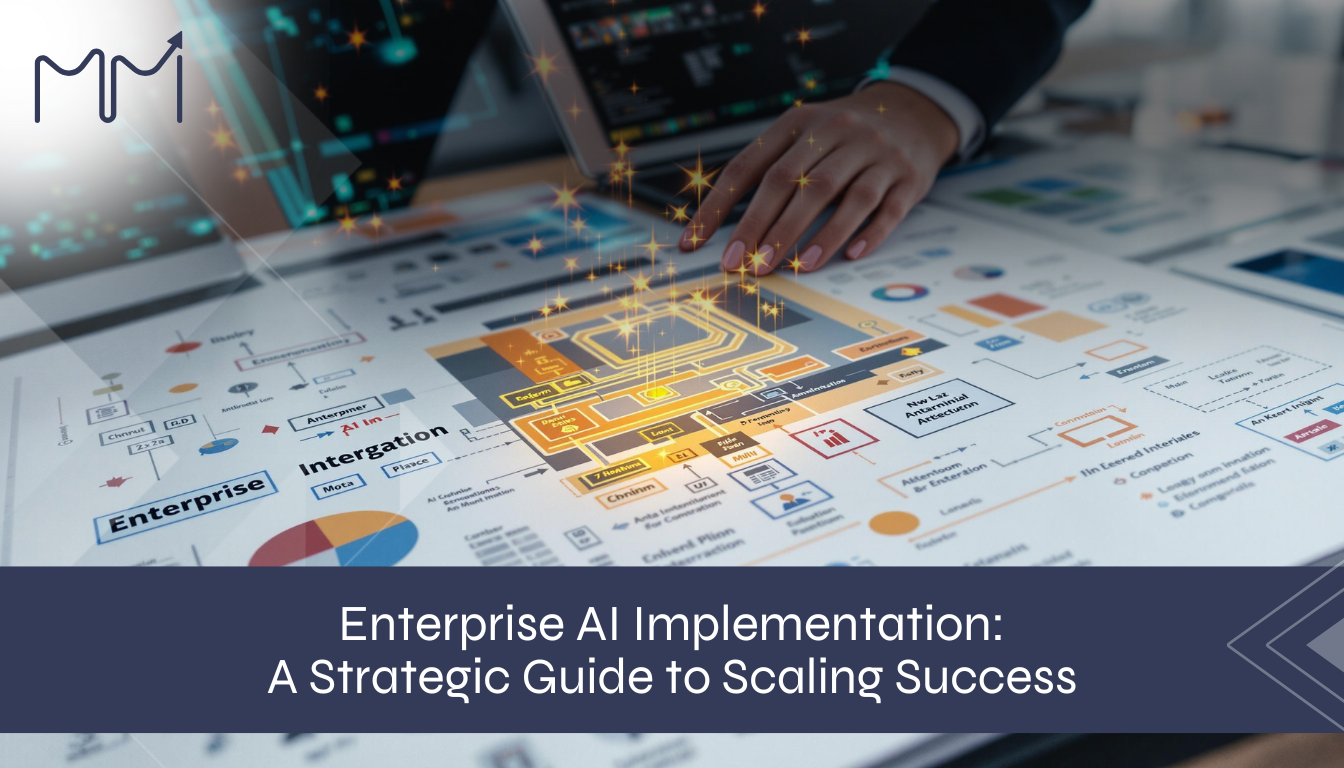Enterprise artificial intelligence (AI) represents a transformative approach to business operations, enabling organizations to leverage advanced analytics, machine learning, and automation across their entire infrastructure. This comprehensive guide explores how businesses can successfully implement and scale enterprise AI solutions while maximizing return on investment.
Understanding Enterprise AI Architecture
Enterprise AI extends beyond isolated solutions, encompassing a comprehensive framework that integrates with existing business processes. The architecture typically includes:
- Data Integration Layer: Connects diverse data sources
- Analytics Engine: Processes complex datasets
- Machine Learning Models: Delivers predictive insights
- Automation Framework: Streamlines operations
- Agentic AI Frameworks
- Security Controls: Ensures data protection
Key Implementation Considerations
Data Readiness Assessment
Before implementing enterprise AI solutions, organizations must evaluate their data infrastructure:
- Data Quality: Ensure accuracy and completeness
- Storage Capabilities: Assess current capacity
- Processing Power: Determine computational needs
- Integration Points: Map system connections
- Governance Framework: Establish data policies and control systems
Technical Requirements
Successful enterprise AI implementation demands robust technical foundations:
- Cloud Infrastructure: Scalable computing resources
- API Framework: Seamless system integration
- DevOps Tools: Continuous deployment capability
- Monitoring Systems: Performance tracking
- Security Protocols: Data protection measures
- Role based user access and interfaces
Implementation Strategy
Phase 1: Foundation Building
- Establish data governance framework
- Deploy necessary infrastructure
- Train technical teams
- Create security protocols
- Set up monitoring systems
Phase 2: Pilot Program
- Select high-value use cases
- Implement proof-of-concept
- Measure initial results
- Gather user feedback
- Refine approach
Phase 3: Scale-Up
- Expand successful pilots
- Optimize performance
- Enhance integration
- Scale infrastructure
- Monitor ROI
Measuring Success
Track these key performance indicators (KPIs):
- Process Efficiency: 25-40% improvement
- Cost Reduction: 15-30% savings
- Decision Accuracy: 30-50% enhancement
- Resource Utilization: 20-35% optimization
- Customer Satisfaction: 20-40% increase
- Governance Risk Compliance improvements: 65%+ increase
Risk Mitigation
Automate potential challenges through:
- Regular security audits
- Continuous monitoring
- Performance optimization
- User training programs
- Compliance checks
Business Benefits
Enterprise AI delivers measurable advantages:
- Operational Efficiency
- Automated workflows
- Reduced manual intervention
- Streamlined processes
- Strategic Decision-Making Frameworks
- Data-driven insights
- Predictive analytics
- Risk assessment
- Agentic AI agent automations
- Customer Experience
- Personalized service
- Quick response times
- Improved engagement
Frequently Asked Questions
Q: What infrastructure is required?
A: On-Premises or Cloud computing capabilities, data storage systems, and processing power scaled to organizational needs.
Q: How long until ROI?
A: Typically 6-12 months, depending on implementation scope and efficiency gains.
Q: What security measures are needed?
A: Comprehensive security framework including encryption, access controls, and compliance protocols.
Next Steps
Ready to transform your business with enterprise AI? Contact Modern Management’s technical team for a detailed assessment and implementation roadmap.
Book Your Strategy Session: https://cal.com/enablement-taaz/book-a-session
*Modern Management combines advanced AI, Agentic AI and Automation technical expertise with practical business acumen to deliver enterprise AI solutions that drive measurable results.



